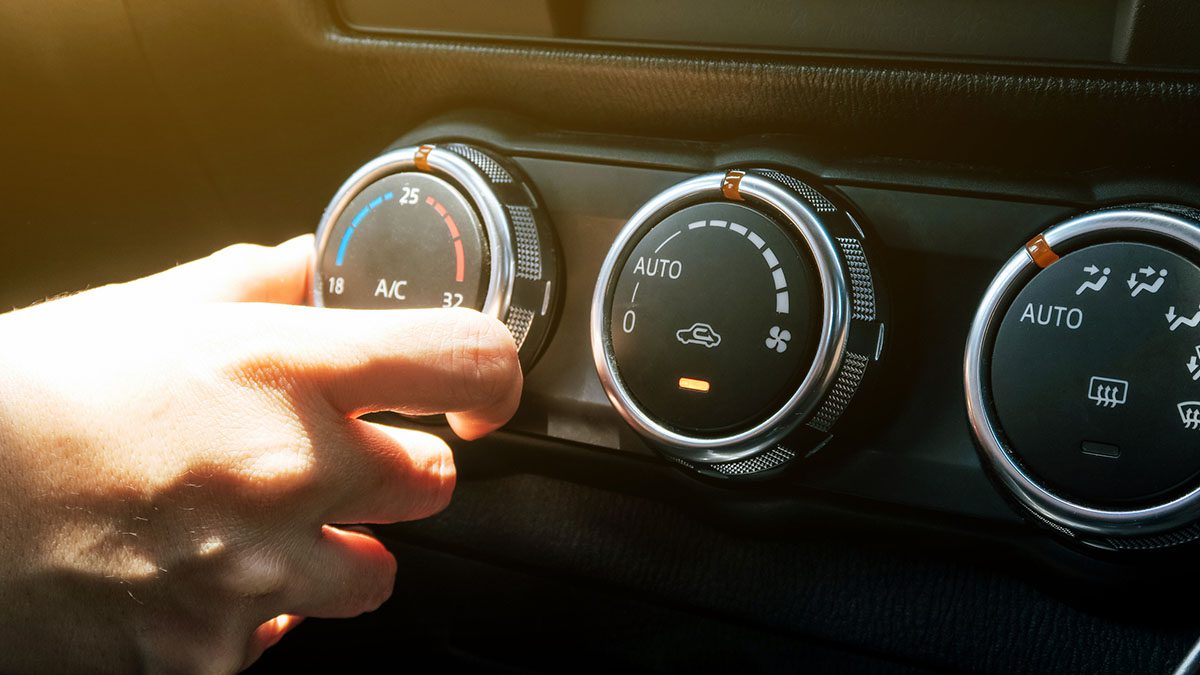Does Your AC Use Gas?

Driving a hot car over the summer can be an unpleasant experience, so many of us turn to our air conditioning (AC) when temperatures start to climb. However, like most mechanisms in our cars, the AC uses fuel to run. Does this mean you need to cut back on your AC usage to remain fuel efficient in hot weather? Not necessarily. Learn how AC works and when you should use your AC to maximize fuel economy.
How Does AC Work?
AC works by moving refrigerant—a chemical that produces a cooling effect—between a liquid and gaseous state. As the refrigerant changes, it absorbs heat and humidity in your car while circulating cool, dry air. This process involves multiple different components, including:
The compressor: creates cool air by compressing the refrigerant into a fluid and moving it to the condenser.
The condenser: lowers the temperatures and pressure of the hot gasses coming off the cooling refrigerant and moves the liquid to the next step.
The receiver/dryer: separates gas from liquid, prevents liquid from entering the compressor, and filters moisture and contaminants out of the air to protect the AC system.
The expansion valve or orifice tube: monitors the temperature and pressure of your AC system and calculates the exact amount of refrigerant to put into the evaporator.
The evaporator: circulates the air through the refrigerant before it cools off your car.
Does Using the AC Waste Gas/Decrease Efficiency?
Since your AC draws energy from the alternator, which is powered by your car’s engine, your AC uses fuel. That’s why your AC doesn’t work while your car is turned off. Since your AC uses fuel, many people assume that turning on the AC when it’s hot decreases fuel efficiency, or the distance your car can travel on one tank of gas. However, this isn’t the case in every situation; there are times when using your AC can be efficient.
When Should I Use My AC?
Using your AC while you’re doing a lot of stop-and-go driving or sitting in traffic can eat up your gas and decrease fuel economy. Conversely, if you’re driving freely on the highway, it may be more efficient to use your AC as needed. In general, experts recommend using less AC if you’re sitting in heavy traffic, but feel free to use that AC when you’re on the open road (going the speed limit, of course). If you’re still concerned about fuel economy, check out our blog post and learn how to stretch that tank of gas.
Is Leaving My Windows Down Better Than Using AC?
While leaving your windows open instead of using your AC seems like a smart way to increase fuel efficiency, open windows put a drag on your car, make it less aerodynamic, and cause it to use more gas. In this case, it’s better to keep the windows closed and opt for the AC instead, especially if you’re driving at a moderate-to-high speed.
Now that you know how to use your AC mindfully, you can keep your car cool for the rest of the summer. If you’re looking for a policy for your car, The General has affordable coverage options for every driver and budget. Get a quote in under two minutes to see how much you can save or visit our car insurance blog to get more of your car questions answered.







